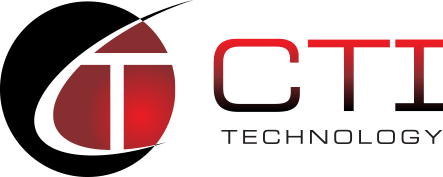Can Your Managed IT Services Company Support Your Business In Increasing Sales Revenues? Key Strategies for Growth
When you think about increasing sales revenues, IT may not be the first area that comes to mind. Yet the way your systems run, how secure they are, and how efficiently your team can work all directly impact sales performance. A managed IT services company can support your business in driving higher revenues by improving efficiency, reducing downtime, and creating a stronger foundation for growth.
With the right partner, you gain more than technical support—you gain a strategy for scaling. By streamlining operations and ensuring reliable systems, you free your team to focus on serving customers and closing deals. Stronger cybersecurity and compliance measures also build trust, directly influencing buying decisions and long-term customer relationships.
Your ability to compete depends on what you sell and how well your technology supports your goals. Managed IT services give you the tools, expertise, and proactive management needed to stay ahead in a competitive market while keeping your sales pipeline moving.
Key Takeaways
- Managed IT services can directly contribute to higher sales revenues
- Reliable systems and security create more substantial customer confidence
- Proactive IT management positions your business for long-term growth
How Managed IT Services Drive Sales Revenue Growth
When you use managed IT services effectively, you strengthen the connection between technology and revenue generation. By aligning IT with business goals, empowering sales teams with digital tools, and expanding into new markets through scalable solutions, you create a foundation for measurable sales growth.
Aligning IT Strategy With Business Objectives
Your IT strategy should directly support your sales and revenue goals. Managed IT services help you align infrastructure, applications, and processes with the specific outcomes your business is targeting. This ensures your technology investments directly contribute to growth rather than becoming isolated cost centers.
For example, integrating customer relationship management (CRM) systems with your IT environment enables sales teams to access accurate data in real time. This reduces delays in responding to leads and improves conversion rates.
Managed service providers also monitor and optimize system performance to minimize downtime. When your sales team can consistently rely on fast and reliable tools, productivity increases.
Key benefits include:
- Improved CRM integration for faster lead response
- Reduced downtime through proactive maintenance
- Scalable infrastructure that grows with your sales pipeline
Enabling Digital Transformation for Sales Teams
Digital transformation allows your sales teams to work smarter and more efficiently. With managed IT services, you can adopt cloud-based collaboration platforms, mobile device management, and secure remote access tools that keep your team connected wherever they are.
These tools support faster communication with prospects and customers. For instance, cloud-based file sharing ensures that proposals and contracts are always accessible and up to date.
Automation also plays a role. Your sales staff can focus on customer engagement by automating routine tasks such as data entry or report generation. According to Kraft Business, outsourcing IT functions enhances operational efficiency, directly supporting revenue growth.
With managed IT services, you gain:
- Secure remote access for mobile sales teams
- Automated workflows to reduce repetitive tasks
- Data-driven insights from analytics tools that guide sales decisions
Leveraging IT Solutions to Capture New Markets
Expanding into new markets requires IT systems that can scale quickly without compromising performance. Managed IT services provide cloud computing, virtualization, and Infrastructure as a Service (IaaS), enabling you to adapt to changing market demands.
For example, you can scale server capacity or deploy localized applications without significant upfront investments when entering a new region. This flexibility allows you to test new opportunities with lower financial risk.
Providers also strengthen your cybersecurity posture, essential when handling sensitive customer data across multiple markets. As noted by Systems X, managed IT solutions help businesses scale infrastructure without limitations, ensuring smooth expansion.
Benefits include:
- Cloud scalability for rapid market entry
- Cybersecurity protections that safeguard customer trust
- Cost-effective infrastructure that reduces barriers to expansion
Enhancing Operational Efficiency To Boost Revenue
Improving operational efficiency directly affects your ability to generate higher sales revenues. You can create a more productive environment that supports growth and customer satisfaction by minimizing wasted time, reducing disruptions, and leveraging the latest technology.
Automating Processes for Increased Productivity
Automation allows you to eliminate repetitive manual tasks that slow down your team. For example, automated ticketing systems can streamline IT support requests, ensuring faster resolutions and freeing staff to focus on revenue-generating activities.
You can also automate data entry, reporting, and routine system checks. This reduces human error and ensures consistent accuracy across your operations. Managed IT service providers often integrate automation tools into business systems, making scaling easier without additional labor costs.
Adopting automation improves response times, enhances customer service, and increases employee productivity. These improvements directly support sales teams by giving them more time to focus on client relationships and closing deals.
Key benefits of automation include:
- Faster turnaround on routine tasks
- Reduced overhead costs
- Improved accuracy in reporting and analytics
- More time for sales-focused activities
Reducing Downtime and Its Impact on Sales
Downtime disrupts customer interactions, delays transactions, and can cause direct revenue loss. Even short outages can prevent your sales team from accessing critical systems like CRM platforms or communication tools.
Proactive monitoring and regular software updates play a vital role in minimizing downtime. A managed IT service provider can detect potential issues early, apply patches, and resolve problems before they impact your operations. This approach reduces the risk of data loss and ensures continuous system availability.
When your systems run smoothly, your sales team can engage customers without interruption. This reliability builds trust and supports consistent revenue growth.
| Downtime Cause | Preventive Action | Business Impact |
|---|---|---|
| Outdated software | Regular updates | Fewer security risks |
| Server failures | Proactive monitoring | Continuous system access |
| Cyberattacks | Managed security services | Protection of customer data |
Streamlining Workflows With Latest Technology
Adopting the latest technology helps you modernize workflows and increase efficiency across departments. Cloud-based collaboration tools, for instance, allow your sales team to access data in real time, whether in the office or on the road.
You can implement solutions like virtualization, mobile device management, and advanced analytics with managed IT services. These tools optimize how resources are allocated and ensure your team can work seamlessly across platforms.
Streamlined workflows reduce bottlenecks and improve communication between sales, marketing, and customer service. This alignment ensures faster response times, fewer errors, and a smoother customer experience.
Keeping your IT infrastructure updated, you stay competitive and create a foundation for long-term revenue growth. Leveraging managed IT services to enhance operational efficiency ensures your business can adapt quickly to market demands.
Improving IT Infrastructure for Scalability and Growth
A well-structured IT infrastructure helps you adapt to changing business demands while controlling costs. By aligning technology with growth objectives, you reduce downtime, improve efficiency, and prepare your systems for expansion.
Building a Scalable IT Environment
You need IT systems that can expand without disrupting operations. A scalable environment ensures that your network, storage, and applications can handle increased workloads as your customer base grows.
Managed Service Providers (MSPs) often design infrastructures with cloud-based platforms, which allow you to increase capacity without significant upfront investments. This flexibility prevents you from over-purchasing hardware or software that may sit unused.
Key elements of a scalable IT environment include:
- Virtualization to optimize server usage
- Automated monitoring for proactive issue detection
- Redundant systems to minimize downtime
- Secure data storage that grows with your needs
By leveraging scalable solutions, you maintain consistent performance and avoid costly bottlenecks. Providers like Jones IT highlight how optimized infrastructure directly supports business growth by ensuring your IT never becomes a limiting factor.
Supporting Expansion With Flexible Solutions
Your IT must adapt quickly when your business enters new markets or adds services. Rigid systems can slow expansion, while flexible solutions help you respond to opportunities without long delays.
An MSP can align your infrastructure with cloud applications, remote workforce tools, and cybersecurity frameworks that scale as you grow. This adaptability reduces the risk of overspending on fixed resources while giving you room to expand operations.
For example, Telco ICT emphasizes compliance and growth-focused IT strategies. These strategies allow you to expand while staying aligned with industry regulations, which is critical for maintaining trust and avoiding penalties.
With flexible IT solutions, you can scale up or down based on demand, ensuring that your technology supports rather than restricts your revenue goals.
Strengthening Cybersecurity and Compliance for Sales Confidence
Customers expect their personal and financial information to remain secure when doing business with you. Strong cybersecurity practices, adherence to compliance requirements, and effective risk management directly influence whether buyers feel confident enough to complete transactions.
Protecting Sensitive Customer Data
You handle customer information daily, from payment card details to personal identifiers. Even a minor breach can erode trust and reduce sales if this data is not secured correctly.
Implement data encryption for information both in transit and at rest. This ensures that even if data is intercepted, it remains unreadable. Adding multi-factor authentication (MFA) also prevents unauthorized access, blocking most account compromise attempts.
Regular vulnerability assessments and penetration testing help you identify weaknesses before attackers exploit them. According to industry research, businesses that perform quarterly assessments reduce their risk profile significantly.
Customers are more likely to return when they know their information is safe. By adopting secure payment systems and modern IT protections, you not only prevent fraud but also increase customer retention. For example, retailers using secure payment platforms have reported higher trust and repeat sales due to reduced fraud concerns.
Maintaining Regulatory Compliance to Build Trust
Compliance with frameworks such as PCI DSS, GDPR, or HIPAA is a legal requirement and a competitive advantage. Non-compliance can lead to fines, but more importantly, it can damage your reputation and discourage customers from doing business with you.
By working with managed IT providers, you gain structured compliance management that ensures your systems stay aligned with evolving regulations. According to Consilien, managed services help minimize litigation risks by keeping you in line with industry-specific controls.
Regular compliance audits provide transparency. Sharing compliance reports with clients demonstrates accountability and builds confidence. Customers often prefer businesses that can prove they are proactive about data protection.
Maintaining compliance also helps you streamline internal processes. Standardized policies for data handling, access controls, and reporting reduce confusion and ensure employees follow consistent security practices. This consistency creates a safer environment that supports ongoing revenue growth.

Mitigating Risks From Cyber Threats and Data Breaches
Cyber threats evolve quickly, and attackers often target businesses with outdated systems. A breach can result in lost revenue, downtime, and long-term reputational harm.
You can reduce these risks by implementing continuous monitoring and threat detection tools. As noted by Moldstud, companies using AI-driven monitoring improve incident response times significantly, helping limit damage during attacks.
Regular software updates and patch management are critical. Many breaches exploit known vulnerabilities that could have been fixed earlier. Scheduling updates consistently reduces exposure.
Employee training also plays a significant role. Teaching your staff how to recognize phishing attempts, handle sensitive data, and report suspicious activity decreases the likelihood of human error leading to breaches.
Finally, conducting IT infrastructure audits ensures you identify risks such as outdated hardware or poor configurations. By addressing these gaps, you strengthen your defenses and reassure customers that their data is safe, directly supporting sales confidence.
Leveraging Managed Service Providers for Competitive Advantage
Working with a managed service provider (MSP) allows you to strengthen both your technical operations and financial efficiency. By combining specialized expertise with scalable service models, MSPs help you improve business performance while keeping costs predictable.
Accessing Expertise and 24/7 Support
When you partner with a managed service provider, you gain access to highly skilled professionals specializing in cybersecurity, compliance, cloud infrastructure, and data management. This level of expertise is often difficult and expensive to maintain in-house.
MSPs also provide round-the-clock monitoring and support, which reduces downtime and ensures your systems remain available. For example, many companies rely on managed IT services to guarantee business continuity through proactive monitoring and rapid issue resolution.
You can also benefit from industry-specific knowledge. Leading MSPs bring an understanding of regulatory requirements and best practices unique to your sector. This helps you avoid compliance risks while improving operational resilience.
By offloading technical responsibilities to an MSP, you free your internal teams to focus on initiatives that directly support growth and customer engagement.
Optimizing Costs and Resource Allocation
Managed service providers typically operate on subscription-based pricing models. This gives you predictable monthly costs and eliminates the need for significant capital investments in hardware, software, or specialized staff. Instead of unpredictable expenses, you gain budget visibility and control.
Outsourcing IT functions also reduces the burden of recruiting and training technical employees. With an MSP handling infrastructure, security, and updates, you can reallocate resources to sales, marketing, and product development.
According to research on modern managed services, businesses can lower operating costs by up to 45% while still gaining access to advanced technologies. This balance of efficiency and innovation helps you scale without straining internal budgets.
By optimizing costs and shifting resources strategically, you position your organization to reinvest in areas that drive revenue growth.
Future-Proofing Your Business With Proactive IT Management
Keeping your IT environment adaptable ensures that your business can handle changing customer demands, security threats, and rapid technological shifts. Focusing on forward-looking strategies reduces risks while creating a stronger foundation for growth.
Adopting Emerging Technologies for Sustained Growth
You gain a competitive advantage by adopting the latest technology early instead of waiting for outdated systems to hold you back. Cloud platforms, AI-driven analytics, and automation tools allow you to streamline operations and respond faster to customer needs. These IT solutions also help you scale without heavy upfront investments.
A proactive IT partner ensures you evaluate which technologies align with your business goals. For example, managed IT services can guide you in integrating cloud computing for scalability or using advanced cybersecurity frameworks to protect sensitive data. This approach positions your company to adapt quickly as new tools become available.
Key benefits include:
- Faster decision-making with real-time data analytics
- Improved customer engagement through better digital experiences
- Reduced costs by shifting to flexible, subscription-based IT solutions
Companies that rely on outdated, reactive IT models often struggle to keep pace with competitors. By contrast, businesses that adopt proactive managed services stay aligned with market trends and avoid costly disruptions.
Continuous Software Updates and System Maintenance
You strengthen your IT infrastructure by prioritizing regular software updates and system maintenance. Skipping updates exposes your business to security vulnerabilities, performance issues, and compliance risks. A proactive approach ensures your systems remain secure, stable, and compatible with the latest technology.
Managed IT providers can automate patch management, monitor system performance, and resolve issues before they escalate. This reduces downtime and prevents the need for emergency fixes that disrupt daily operations.
Practical measures include:
- Scheduling automated updates for operating systems and applications
- Monitoring servers and networks for unusual activity
- Testing new patches in controlled environments before rollout
By consistently maintaining your IT environment, you extend the lifespan of your systems and reduce long-term costs. With proactive IT management, you keep your business running smoothly while ensuring your technology supports future growth.
Why Is CTI Technology The Best Choice For IT Services In The Chicagoland Region?











